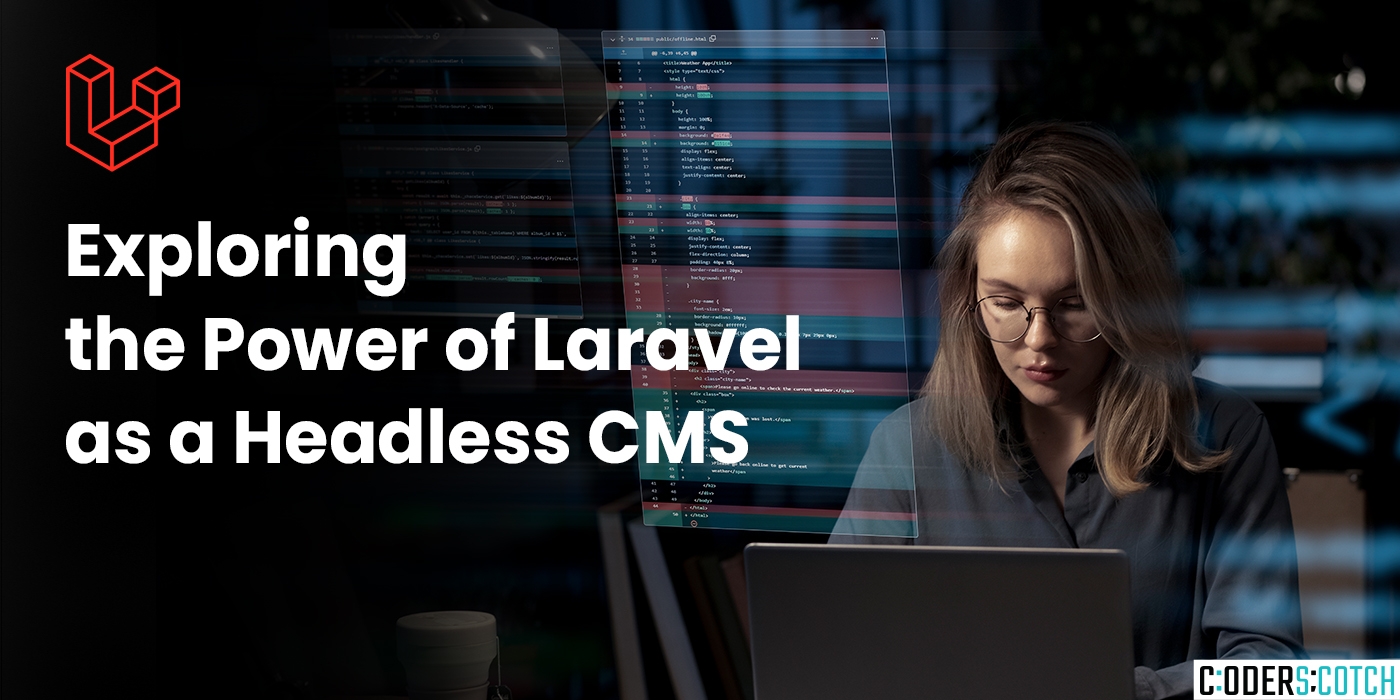
In the fast-paced world of web development, content management systems (CMS) play a pivotal role in delivering dynamic and engaging digital experiences. Traditional CMS platforms often come with limitations, especially when it comes to flexibility and scalability. However, the rise of headless CMS solutions has revolutionized the way developers approach content management, offering unparalleled flexibility and freedom. In this blog post, we delve into the realm of Laravel as a headless CMS and explore its capabilities, advantages, and how it empowers developers to craft exceptional digital experiences.
Before diving into the specifics of Laravel as a headless CMS, let’s first grasp the concept of headless CMS itself. Unlike traditional CMS platforms where the frontend and backend are tightly coupled, headless CMS decouples the content management backend from the presentation layer, allowing developers to utilize any frontend technology to consume and display content.
Laravel has established itself as one of the most popular PHP frameworks, renowned for its elegant syntax, robust features, and developer-friendly ecosystem. While Laravel is traditionally used for building full-stack web applications, its versatility extends to serving as a powerful backend for headless CMS architecture.
Flexibility and Customization: Laravel provides developers with the freedom to design custom content structures tailored to specific project requirements. Whether it’s defining content models, creating relationships between entities, or implementing complex business logic, Laravel’s expressive syntax and modular architecture make it a preferred choice for building bespoke CMS solutions.
RESTful API Development: Laravel excels in API development, thanks to its built-in support for creating RESTful APIs. Leveraging Laravel’s API resources, developers can effortlessly expose content stored in the backend to various frontend applications or services. This enables seamless integration with a wide range of frontend frameworks, including React, Vue.js, and Angular.
Scalability and Performance: Laravel’s robust architecture and optimization features ensure scalability and high performance, even in demanding environments. Whether handling a small blog or a large-scale enterprise application, Laravel’s efficient database querying, caching mechanisms, and queuing system contribute to optimal performance and scalability.
Security: Security is paramount in any web application, especially when managing sensitive content. Laravel prioritizes security by offering built-in protection against common vulnerabilities such as SQL injection, cross-site request forgery (CSRF), and cross-site scripting (XSS). Additionally, Laravel’s authentication and authorization mechanisms streamline the implementation of access control policies, ensuring that content remains secure.
Community and Ecosystem: Laravel boasts a vibrant community and an extensive ecosystem of packages and tools that further enhance its capabilities as a headless CMS. From authentication solutions like Laravel Passport to robust admin panel generators like Laravel Nova, developers have access to a plethora of resources to expedite development and streamline workflows.
1. Strapi
Strapi is an open-source headless CMS that offers a highly customizable content management experience. It provides an intuitive admin panel for content creation and management while exposing a robust RESTful API for fetching content. Strapi’s flexible plugin system and role-based access control (RBAC) make it suitable for a wide range of projects, from small blogs to enterprise applications.
2. Contentful
Contentful is a cloud-based headless CMS known for its developer-friendly approach and scalability. It provides a structured content model that allows developers to define content types and relationships easily. Contentful’s powerful APIs support various programming languages and frameworks, including PHP, making it a seamless fit for Laravel projects.
3. GraphCMS
GraphCMS is a GraphQL-based headless CMS designed to streamline content management and delivery. It offers a visual content modeling interface that enables developers to create flexible content schemas effortlessly. With built-in support for GraphQL, GraphCMS facilitates efficient data querying and retrieval, empowering developers to build high-performance applications with Laravel as the backend.
4. Directus
Directus is an open-source headless CMS that prioritizes flexibility and extensibility. It allows developers to create custom SQL database structures and define relationships between entities using its intuitive admin interface. Directus exposes a RESTful API for content consumption, making it compatible with Laravel’s REST API capabilities.
5. Prismic
Prismic is a headless CMS that focuses on enabling content writers and developers to collaborate effectively. It offers a rich text editor for content creation and supports structured content types with customizable fields. Prismic’s RESTful API and SDKs simplify content integration with Laravel applications, allowing for seamless content delivery across various frontend platforms.
Getting started with Laravel as a headless CMS is straightforward, thanks to Laravel’s comprehensive documentation and developer-friendly ecosystem. By following best practices and leveraging Laravel’s features effectively, developers can architect powerful and scalable headless CMS solutions tailored to their project requirements.
In conclusion, Laravel shines as a versatile and robust backend solution for implementing headless CMS architecture. Its flexibility, scalability, security, and developer-friendly ecosystem make it a compelling choice for building bespoke content management solutions that cater to modern digital experiences. Whether you’re embarking on a new project or seeking to enhance an existing one, consider harnessing the power of Laravel as a headless CMS to unlock endless possibilities in content management and delivery.